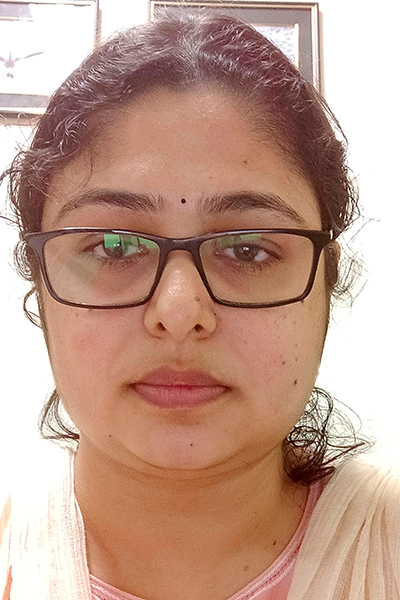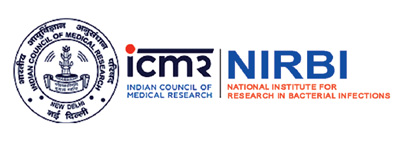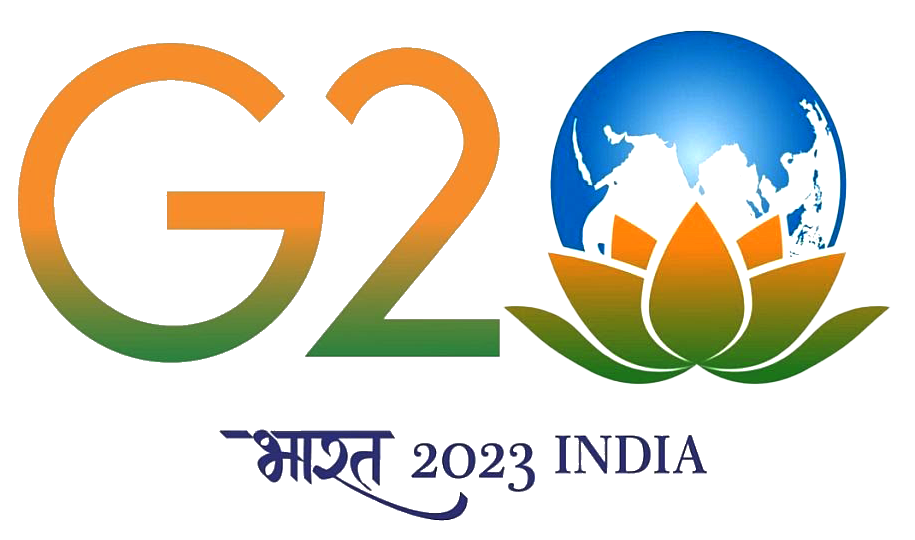ICMR - National Institute for Research
in Bacterial Infections
आईसीएमआर - राष्ट्रीय जीवाणु संक्रमण अनुसंधान संस्थान
Department of Health Research, Ministry of Health and Family Welfare, Government of India
स्वास्थ्य अनुसंधान विभाग, स्वास्थ्य और परिवार कल्याण मंत्रालय, भारत सरकार
WHO Collaborating Centre For Research and Training On Diarrhoeal Diseases
NICED : Scientists

Dr. Moumita Bhaumik
| Name | Dr. Moumita Bhaumik |
|---|---|
| Designation | Scientist D |
| Educational Qualification | Ph.D. |
| Date of joining ICMR | 06 November 2017 |
| Date of joining present post | 20 June 2023 |
| Discipline | Immunology |
| moumita.bh@icmr.gov.in ; drmoumitabhaumik@gmail.com | |
| Academic Qualification : | |
| Graduation | B. Sc in Zoology (2004) |
| Post Graduation | M.Sc in Biophysics and Molecular Biology (2006) |
| Doctoral | PhD inBiophysics and Molecular Biology (2014) |
Profile
Research Experience
With a previous experience in the immunobiology of
Leishmania infection, I joined NIRBI and focused my
research on gut immunology. We established colitis model
in mice started exploring possibilities of immune
regulation of RNA binding proteins. In this regard we
have successfully developed morpholino induced knockdown
model in mice to address research questions. With the
change in mandate of research activities in NIRBI our
lab is trying to focus we are trying to utilize our
research experiences and address the new research
questions.
Research Interest
RNA-binding proteins critically influence gene expression programs in physiology and disease. Towards the long-term goal of uncovering post-transcriptional regulatory mechanisms in regulating the physiology of gut during Inflammatory Bowel Disease (IBD) and arsenic toxicity, we use primary cells, cell lines, mice model and human colon organoids to study specific RNA-driven processes that control (1) immune responses, (2) gut barrier function, and (3) EMT responses. We undertake studies to determine therapeutic role of novel antisense technology and/or per rectal treatment with modified organoids in mice IBD model.
In the context with the change in institute's mandate of research we also focus in developing immunotherapies and vaccines for anti-microbial resistant bacteria.
Membership/ Fellow of Professional Societies/ Associations
- Life member of 1. Society for Biological Sciences,
- Calcutta Consortium for Human Genomics
Awards
- A. K. Memorial Award for first in B.Sc in University of Calcutta 2004.
- CEFIPRA PROWIS-I Women fellowship 2023
- IIS - Women in Science Recognition 2024
Projects:
Extramural
| # | Project title | Funding agency | Period |
|---|---|---|---|
| 1 | Novel cell penetrating Phosphorodiamidate Morpholino Oligomer based therapy for IBD targeting sphingosine kinase1 | DHR2 | 2024 - 2027 |
| 2 | Comparative assessment of immune responses following covaxin, covishield, sputnik-V and development of a novel vaccine candidate using doggybone/ (MIDGE) DNA encoding SARSCoV2- spike protein for employing alongside current vaccines in heterologous prime-boost approach in mice | ICMR extramural | 2022 - 2025 |
| 3 | Assessment of prophylactic and therapeutic role of BCG against SARS CoV2 infection: study in hamster model | DBT-BIRAC2 | 2021 - 2022 |
| 4 | Sphingolipid as mediator in the interface of microbiome and host: implication in gut pathology | DST-SERB | 2021 - 2024 |
Intramural
| # | Project title | Period |
|---|---|---|
| 1 | Designing morpholino oligonucleotides (MO) based therapeutic for inflammatory bowel disease and its functional analysis | 2024 - 2027 |
| 2 | The role of short chain fatty acid in cholesterol homeostasis: implication in gut immunology | 2018 - 2022 |
Students
- JRF: Sutanu Acharya Chowdhury, Diganta Roy
- SRF: Aaheli Masid
- RA
- PDF: Oishika Das
Publications
Publications in NIRBI
- Sikdar S, Mitra D, Das O, Bhaumik M, Dutta S. The functional
antagonist of sphingosine-1-phosphate, FTY720, impairs gut
barrier function. Front Pharmacol. 2024;15:1407228.
2. Das O, Masid A, Chakraborty M, Gope A, Dutta S, Bhaumik M. Butyrate driven raft disruption trots off enteric pathogen invasion: possible mechanism of colonization resistance. Gut Pathog. 2023;15(1):19. - Das O, Kundu J, Ghosh A, Gautam A, Ghosh S, Chakraborty M, et al. AUF-1 knockdown in mice undermines gut microbial butyrate-driven hypocholesterolemia through AUF-1-Dicer-1-mir-122 hierarchy. Front Cell Infect Microbiol. 2022;12:1011386.
- Nickla DL, Wang X, Rucker F, Chen W, Taylor C. Effects of Morning or Evening Narrow-band Blue Light on the Compensation to Lens-induced Hyperopic Defocus in Chicks. Optom Vis Sci. 2023;100(1):33-42.
- Alcantara LCJ, Amenga-Etego L, Andersson R, Bhaumik M, Choi YK, Decaluwe H, et al. Methods for fighting emerging pathogens. Nat Methods. 2022;19(4):395-7.
- Chakraborty M, Bhaumik M. Prenatal arsenic exposure interferes in postnatal immunocompetence despite an absence of ongoing arsenic exposure. J Immunotoxicol. 2020;17(1):135-43.
Publications before joining NICED
- Ghosh M, Roy K, Das Mukherjee D, Chakrabarti G, Roy Choudhury K, Roy S. Correction: Leishmania donovani Infection Enhances Lateral Mobility of Macrophage Membrane Protein Which Is Reversed by Liposomal Cholesterol. PLoS Negl Trop Dis. 2016;10(4):e0004640.
- Ghosh M, Solanki AK, Roy K, Dhoke RR, Ashish, Roy S. Carrier protein influences immunodominance of a known epitope: implication in peptide vaccine design. Vaccine. 2013;31(41):4682-8.
- Ghosh M, Roy K, Roy S. Immunomodulatory effects of antileishmanial drugs. J Antimicrob Chemother. 2013;68(12):2834-8.
- Roy K, Ghosh M, Pal TK, Chakrabarti S, Roy S. Cholesterol lowering drug may influence cellular immune response by altering MHC II function. J Lipid Res. 2013;54(11):3106-15.
- Roy K, Naskar K, Ghosh M, Roy S. Class II MHC/peptide interaction in Leishmania donovani infection: implications in vaccine design. J Immunol. 2014;192(12):5873-80.
- Bhattacharya P, Gupta G, Majumder S, Adhikari A, Banerjee S, Halder K, et al. Arabinosylated lipoarabinomannan skews Th2 phenotype towards Th1 during Leishmania infection by chromatin modification: involvement of MAPK signaling. PLoS One. 2011;6(9):e24141.
- Banerjee S, Ghosh J, Sen S, Guha R, Dhar R, Ghosh M, et al. Designing therapies against experimental visceral leishmaniasis by modulating the membrane fluidity of antigen-presenting cells. Infect Immun. 2009;77(6):2330-42.


